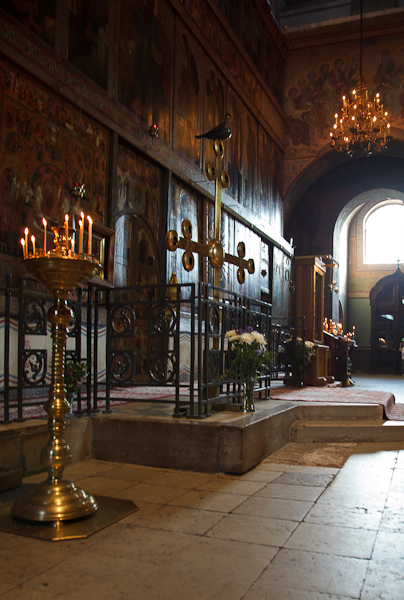
And only one lawsuit.


And only one lawsuit.
The baby rabbits are very tame this year.
When I let the dog out this morning he stood staring at the fence barking energetically. This isn’t completely abnormal for him, so I called him in and paid no attention to what I assumed was a doggy apparition that had caught his attention.
After a repeat performance in the late afternoon, my wife called me with: “there’s an animal stuck in the fence”.
Sure enough, this fellow had tried to squeeze himself through one of the chain links and, like most of us, he underestimated his girth and got stuck. We did eventually manage to extricate him from his predicament:
Incidentally, ground hogs bite quite hard even when you are trying to do them a favour.
Off to spend some time in Irish castles
One of them:
It’s either The Mummy Returns or, judging by the other obvious resemblance, a new Larry Page cloud computing project.
August 2nd is Paratroopers’ Day in Russia so when my wife and I were near Red Square this evening we found ourselves in the middle of a mixture of celebrating – and very drunk – paratroopers and riot police. They celebrated by fighting rival paratrooper divisions while the riot police watched.
I was enjoying taking a few photos until a young fellow got into his car, emerged with a glock and started shooting. The riot police sprang into action and chased him off, leaving his targets free to trash the car, a task they undertook with relish.
I have a very nice photo of the car trashing.
And here it is. The striped shirts belong to the paratroopers; the other two are riot police who watched the car mayhem with interest but no interference.

Arrived in Novgorod and visited the oldest church in Russia (9C) where a mass was in progress.
Dinner, a few – well, numerous – Russian vodkas, smooth as silk neat at room temperature; wonderful.
Were I tempted by mere aesthetics, I might stay.


Normal service will resume as soon as possible.
The Anglican Church of Canada is shrinking faster than a haemorrhoid in an argon laser. Consequently, the dioceses of B. C., Toronto, Rupert’s Land, Ottawa, Ontario and Huron (and Montreal) are “restructuring” in order to survive with fewer people. This, of course, is a euphemism for closing parishes.
I just received an email from a friend in the Diocese of Rupert’s Land who was very excited by the fact that a committee of the Synod will be looking at the vitality and viability of all the parishes in the diocese. This follows on the news of the completed Diocese of B. C. study that called for the closure of some parishes and restructuring of others. The Diocese of Toronto has a strategic plan in the making, Ottawa, Ontario and Huron as well as others I may not know about.
The Diocese of Niagara, however, during the diabolarchy of its last three bishops, has been clever enough to anticipate fleeing parishioners and has been closing churches in advance. Bravo the Diocese of Niagara!
This is simply to illustrate that in light of declining membership and resources in many dioceses the leadership is taking a hard look at the future, most have decided to create a “grand plan”. We in Niagara have taken a slightly different approach and under the leadership of the Bishops Asbil, Spence and Bird and the support of Synod Councils over the years, we have been closing and amalgamating parishes at a pace that makes us the Canadian leaders in restructuring for mission in a changing context.
This technique has been so successful, it is to be exported:
Our Synod has been so successful in our approaches to these issues that the writer and other members of the Mission Strategy Committee have been asked to present our methods to other Diocesan leaders across Canada and the United States.
The whole thing is based on relationship and trust:
This respect leads to relationship which leads to trust and finally a mutual understanding of what the next steps in ministry may need to be.
And doing things the Niagara Way:
What is more it all seems to be very much our “Niagara Way”.
Albert Camus in his novel, The Plague, makes the point that without God humans live in an indifferent, incomprehensible universe that has no rational meaning or order. Camus’ solution to this little problem is not resignation or stoicism but to fight back even though it may be with the knowledge that the fight is futile. For an atheistic existentialist, life’s meaning is found not in overcoming, but in struggling against the apparent evil in the natural order of things. This struggle in the certain knowledge of ultimate failure defines man’s freedom: he is not merely a puppet of the natural order that created him.
I think this is a daft way to live but, as can be seen in this exchange with William Lane Craig, it seems to be an energising principle behind Christopher Hitchens’ attempt to live with the futility of his own existence. The difference between Camus and Hitchens is that, whereas Hitchens never tires of expressing his hatred of all things Christian, Camus had a grudging respect for believers who lived by their Christian principles.